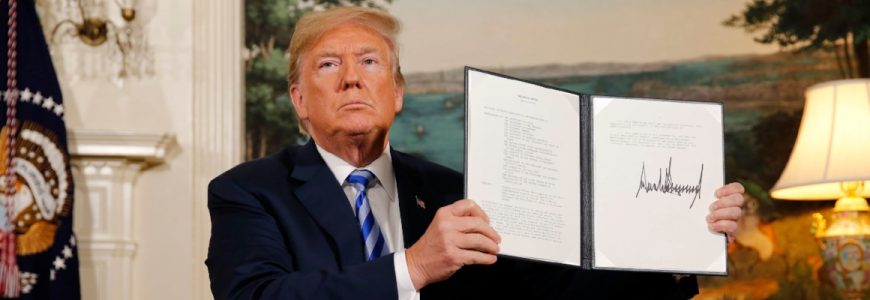
President Trump has violated the Joint Comprehensive Plan of Action and withdrawn from a landmark arms control agreement that enjoyed broad international support. Crucially, he did so more decisively than many expected. In his televised announcement on Tuesday, Trump clearly relished the opportunity to follow through on his campaign promise to “rip up” the Iran nuclear deal, declaring, “The United States no longer makes empty threats. When I make promises, I keep them.”
There is no doubt that the JCPOA is in jeopardy. But the deal has been in jeopardy for a long time. New polling data from IranPoll, drawing on a nationally representative survey of Iranians conducted between April 13-17 and released on May 8 at a Bourse & Bazaar round table in Stockholm, illustrates this point. When asked how confident they are that the “United States will live up to its obligations toward the nuclear agreement,” a resounding 92 percent of Iranians indicated that they lacked confidence, up dramatically from 41 percent in September 2015. Iranians consider U.S. violations of the deal to have been indisputable, even prior to today’s announcement.
The real question is whether the decisiveness with which Trump discarded three months of negotiations with the E3 on a “fix” to the Iran deal will change political perceptions in Europe. European leaders may have be tempted to latch onto any ambiguity in the extent of the U.S. withdrawal, for example had Trump pursued the reapplication of sanctions without immediate enforcement. Over the last few months, France, Germany, and the United Kingdom have proven reluctant to take a robust stance vis-a-vis the United States’ unilateral demands for the renegotiation of the JCPOA. Unsurprisingly, the E3 negotiating strategy was lambasted as one of “appeasement” by Tehran.
The significant and very public investment of political capital in trying to convince Trump to remain in the deal, which saw Macron and Merkel make visits to Washington, as well as British foreign secretary Boris Johnson, meant that an admission of defeat would always have been unlikely. Had Trump taken a more muddled stance on the future of the United States as a party to the nuclear deal, it is not difficult to image that the E3 would have “welcomed” certain aspects of Trump’s relevant announcement.

